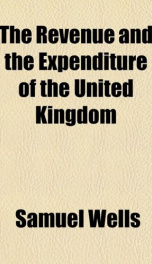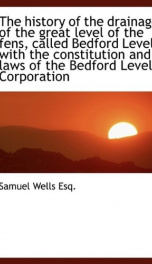the revenue and the expenditure of the united kingdom

Purchase of this book includes free trial access to www.million-books.com where you can read more than a million books for free. This is an OCR edition with typos. Excerpt from book: CHAPTER V. THE EXCISE. ExciseIts NatureEvils arising from the Power of the OfficersFirst imposed in England by the Long ParliamentA Portion of these Duties granted to Charles II. in Exchange for the Feudal TenuresArticles upon which leviedExcisable ArticlesEighteen Branches of Taxation in England and only Eight in IrelandGlassTeaMaltHopsJohn Royle, Esq.BreweriesBricksProbable Repeal of the Permit System Deductions from this Branch of the RevenueCommission of Inquiry Account of the Charges of Collection, andc.Compensation to Salt Commissioners CruisersRetired AllowancesSalaries in ScotlandCorn ReturnsHereditary Excise granted to Charles II.Alterations in the Court of Exchequer in ScotlandWellington AdministrationPensions of theDukeofGraftonLord CowperThe Earl of BathFishery Boun ties and Salaries of CommissionersExcise Establishment. The second most important source of revenue, forming part of the permanent taxation of the country, is the duties (as they are called) of the Excise. The word excise is derived from the Belgic " acciisse," which signifies tribute ; and it is an inland duty or imposition, paid sometimes upon the consumption of the commodity, and frequently upon the wholesale, which is the last stage before the consumption. It is thought by some persons (though the justice of this opinion may be doubted) to be the most economical way of taxing the subject, the charges of collection and management being considerably less in proportion than in other branches of the revenue. It may also produce a less effect in enhancing the price of the commodity than would be produced by charging it with customs to the same amount, as it is generally iraposed at a much later stage; and the consumer, therefore, pays the profit of only one or two indi...
Users who have this book
Users who want this book
What readers are saying
What do you think? Write your own comment on this book!
write a commentif you like the revenue and the expenditure of the united kingdom try:
Do you want to read a book that interests you? It’s EASY!
Create an account and send a request for reading to other users on the Webpage of the book!



